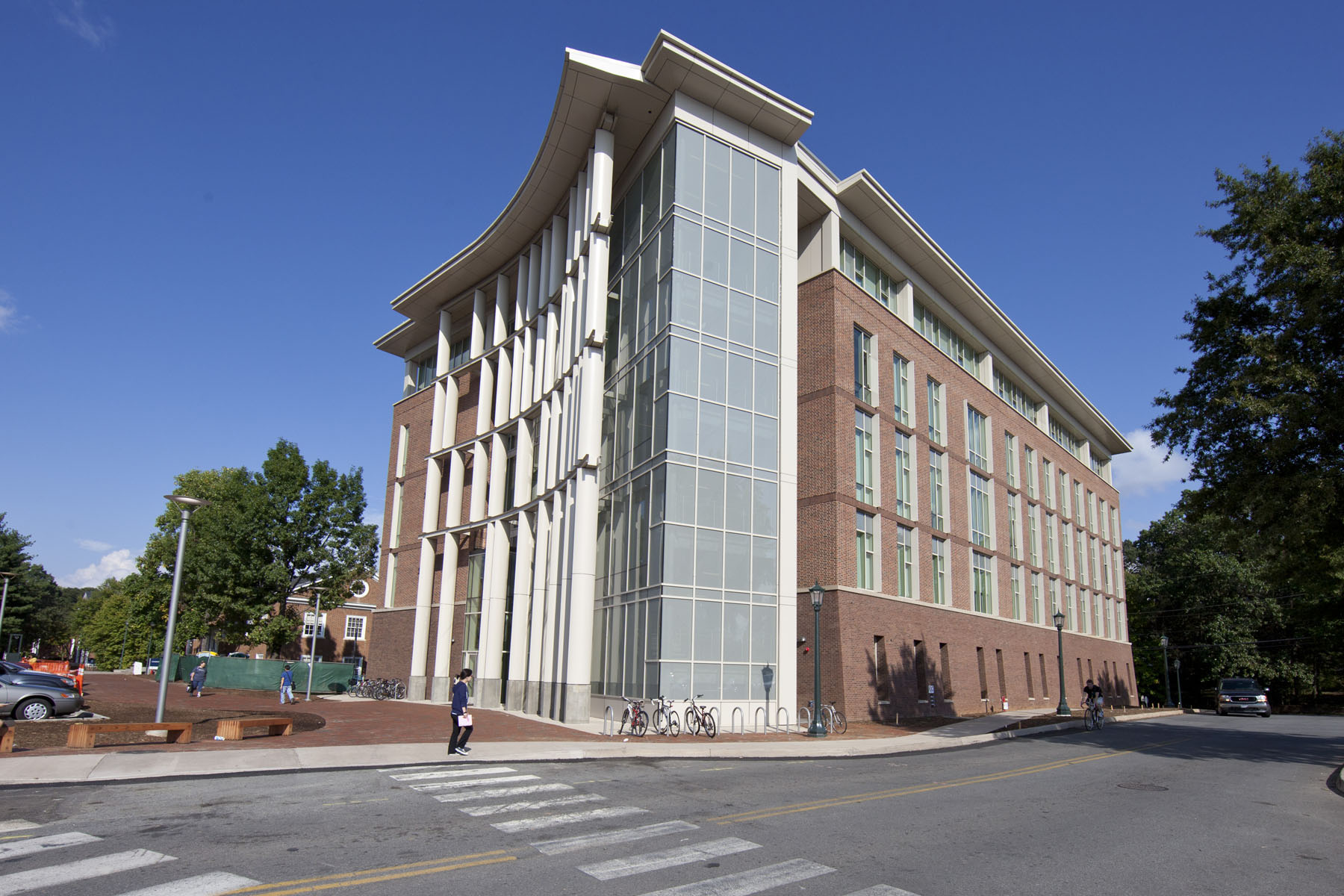The Rice Hall Information Technology Engineering Building, part of a new gateway for engineering and science at the University of Virginia, will be dedicated Nov. 18 at 11 a.m.
As part of the day's celebration, Dean Kamen, whose inventions include the first portable insulin infusion pump, the HomeChoice peritoneal dialysis system and the Segway Personal Transporter, will speak at 3 p.m. in Rice Hall's Olsson Auditorium on "The Future Belongs to the Innovators."
In addition, tours, demonstrations and poster sessions are scheduled from noon to 3 p.m. and a scavenger hunt at 5 p.m. All events are free and open to the public. The building is at the corner of Whitehead and Stadium roads next to the School of Engineering and Applied Science's Olsson Hall.
Kamen, whose speech will be broadcast to the Davis Commons in Rice Hall, is the founder of FIRST (For Inspiration and Recognition of Science and Technology), an organization dedicated to motivating the next generation to understand, use and enjoy science and technology.
The construction of Rice Hall was made possible through a lead gift of $10 million from Paul and Gina Rice, through the Rice Family Foundation. A 1975 graduate of the Engineering School in electrical engineering, Paul Rice is the founder and former president of PEC Solutions Inc., a company that designs complex, customized technology systems for large government agencies and municipalities. It was acquired by Nortel Networks in 2005.
At the groundbreaking for Rice Hall in 2008, he said: "The real promise of what will happen here is the 21st-century extension of the Academical Village and what will be made possible by the technologies that are used, developed and explored in these places. The village won't simply exist then in these buildings or on this campus, but across the state, across the nation and globe. We have only really begun to understand the way in which these technologies can enhance human performance and accomplishment and how they can improve the human condition."
Rice Hall, which opened this fall, serves collaborative researchers as the nexus of information technology engineering at U.Va. It facilitates research and learning in areas that include high-performance computing, computer visualization, computer security, energy conservation, wireless communications, telemedicine, virtual reality, distributed multimedia and distance learning. The building also is the new home to the Computer Science Department and the computer engineering program.
"Our goal is to make this building a showcase for the impact that information technology engineering is having on the world," Dean James H. Aylor said.
A six-story building that includes a basement level with high-bay labs, Rice Hall has a distinctive exterior comprising 20,329 linear feet of glass – 40 percent of its total exterior. The building was designed by Bohlin Cynwinski Jackson and built by W.M. Jordan Company.
Some 250,000 feet of network cable and 650,000 feet of wire for power and lighting were used in the construction, as well as 186,531 bricks, 793 tons of structural steel, 110,000 pounds of ductwork and 40,000 feet of piping. The $65.5 million building includes a 150-seat, state-of-the-art auditorium, a boardroom equipped with a 103-inch plasma monitor, flexible teaching and research labs, workgroup and study areas for students, a cyber café, conference rooms and machine rooms next to research labs and offices. Wireless-enabled collaboration software is installed for use with displays throughout the building, including open collaboration spaces, instructional labs and meeting rooms.
Featuring advanced heating, cooling, lighting and energy-recovery systems linked to sophisticated controllers, Rice Hall will serve as a "living lab" where students and faculty can undertake smart building research and measure and improve innovative operating systems. Dashboards will provide information on energy consumption for the building and various buildings across Grounds. This data will be available to researchers and visitors on kiosks and monitors in the building and online.
Faculty will use state-of-the-art distributed education technologies as well as research developed in Rice Hall labs to advance distance learning, including Engineers PRODUCED in Virginia, which allows students from the Virginia Community College System to earn a four-year engineering degree while remaining in their communities.
In addition to the lead gift of from the Rice Foundation, gifts and support for the building were received from individual donors, corporations, foundations, the University of Virginia and the Commonwealth of Virginia.
Media Contact
Article Information
November 1, 2011
/content/dedication-uvas-rice-hall-feature-segway-inventor-dean-kamen

